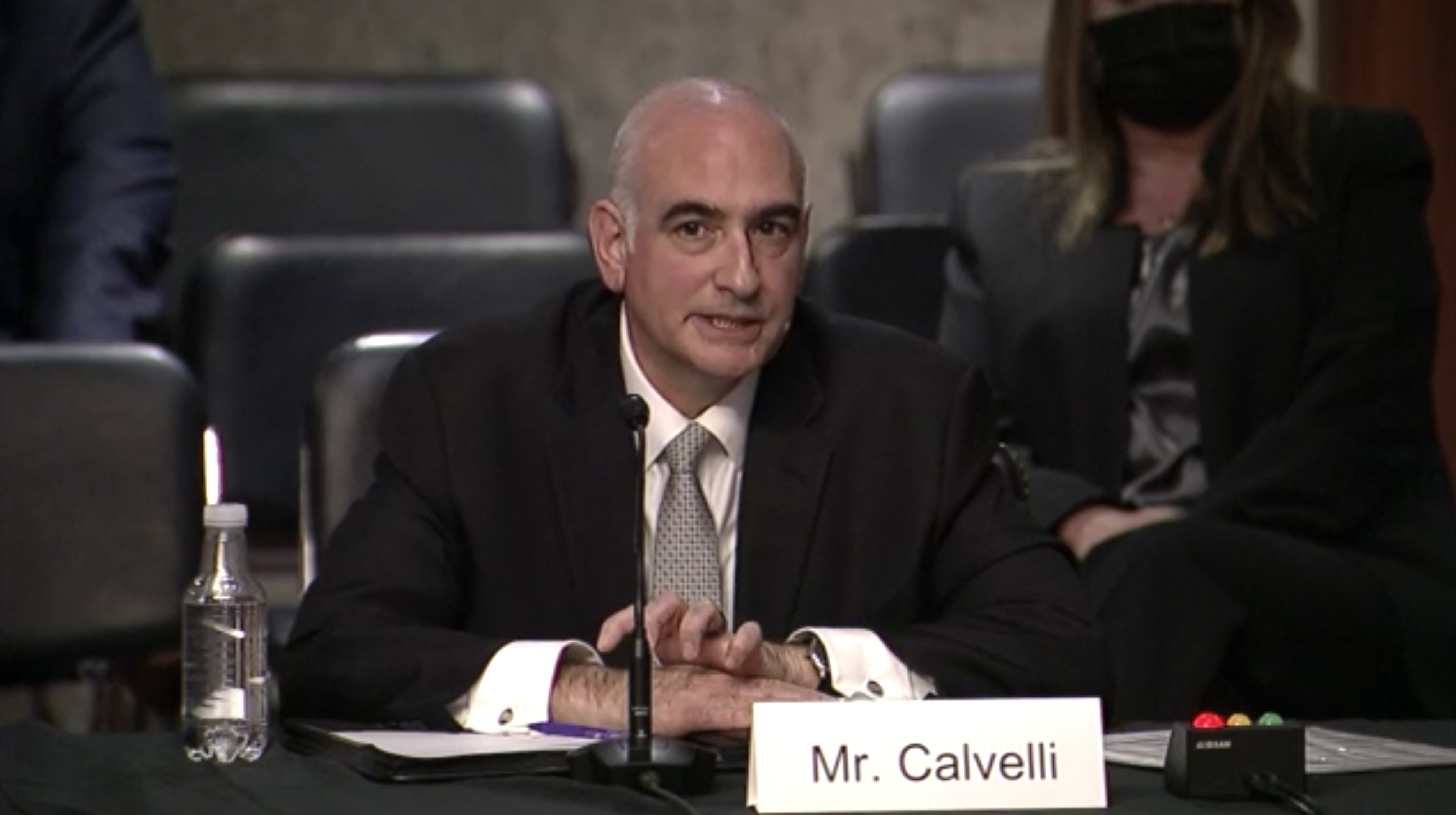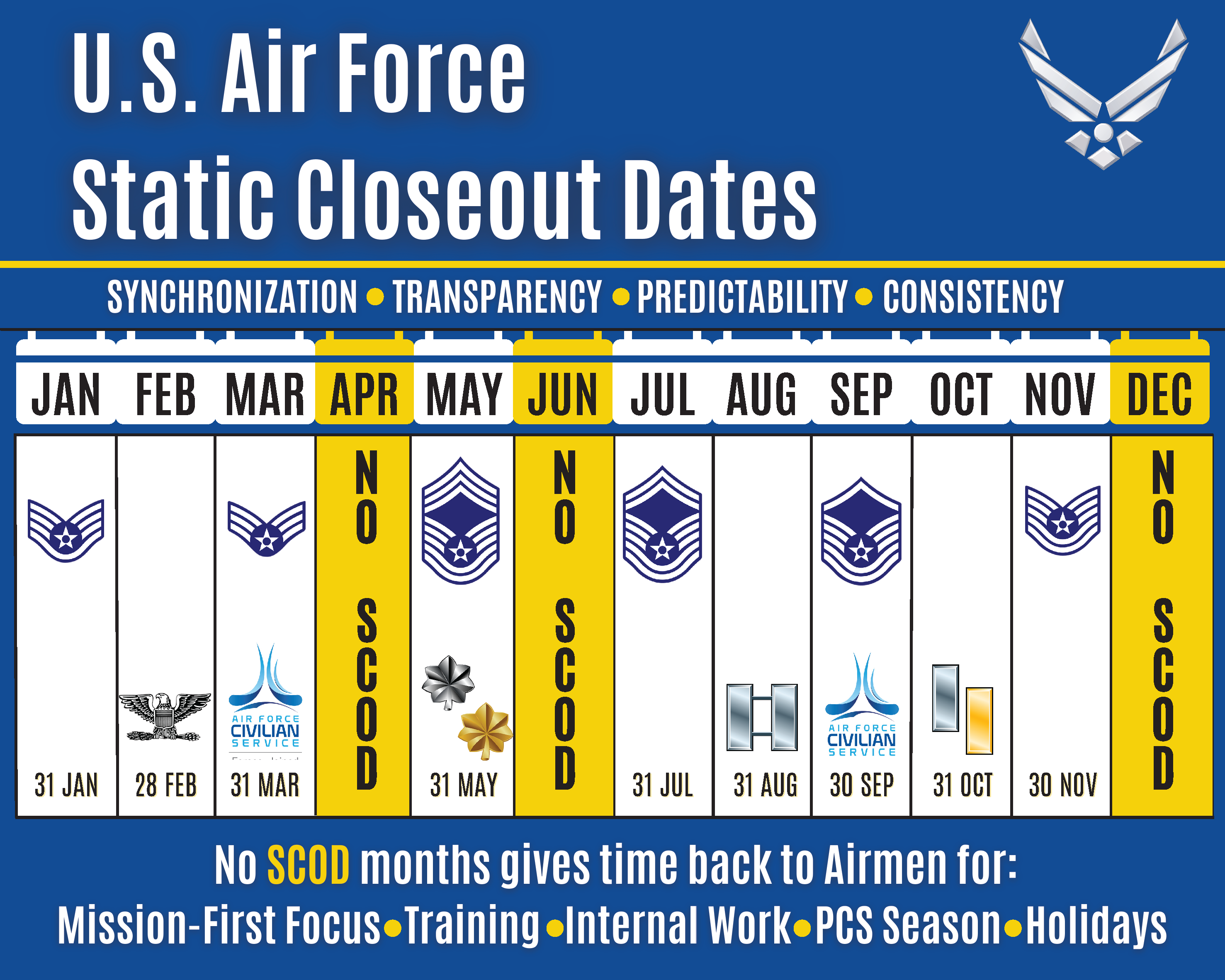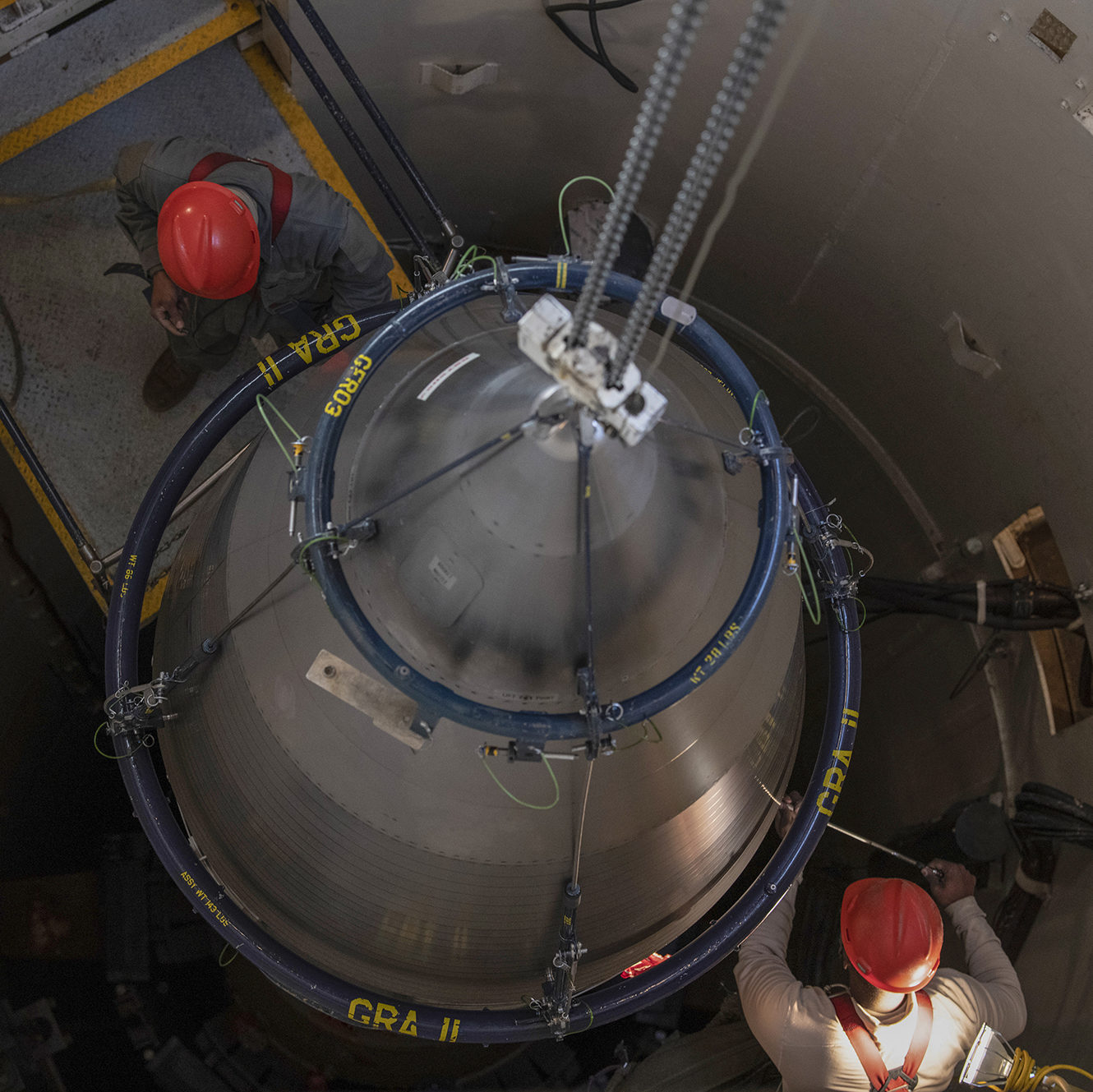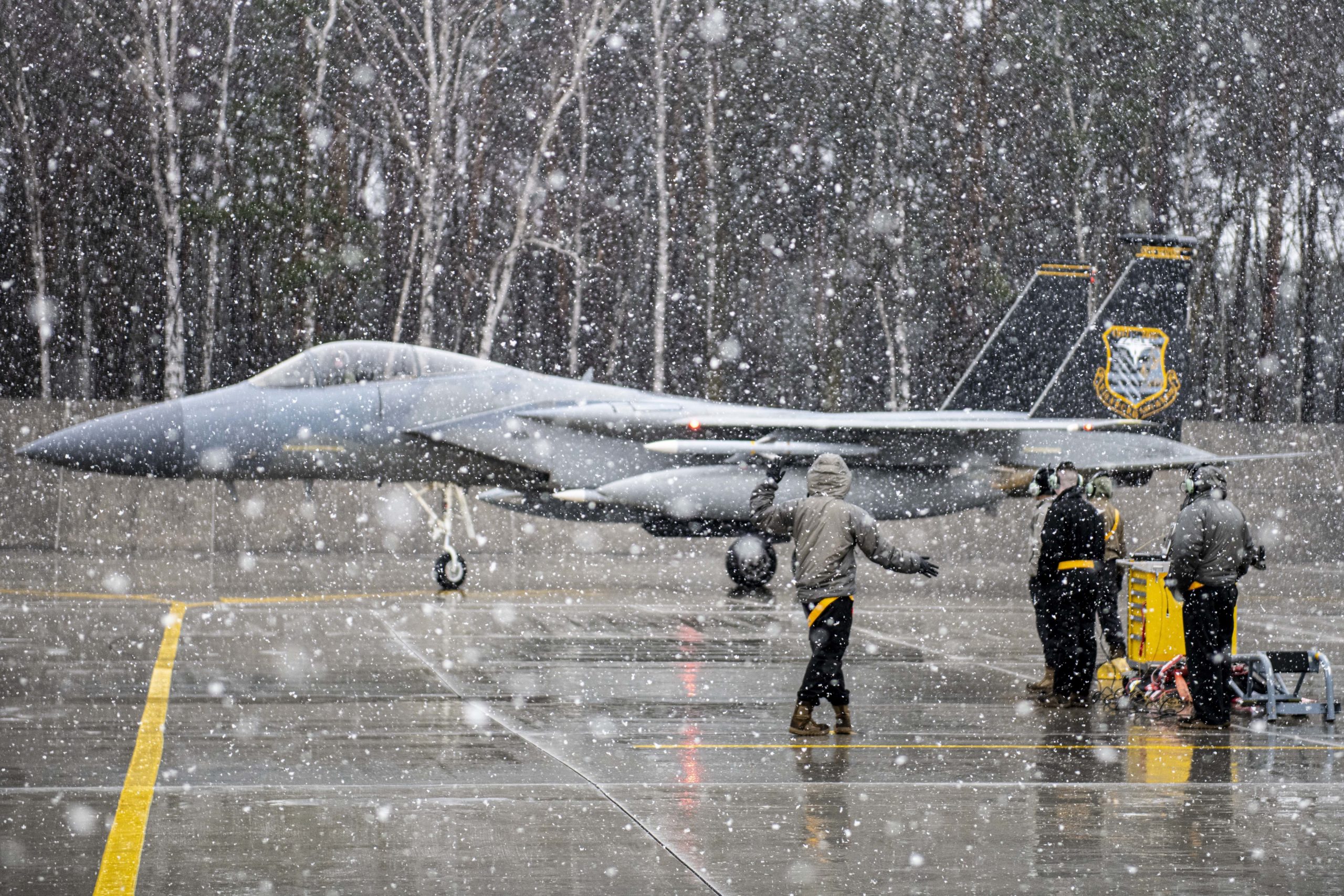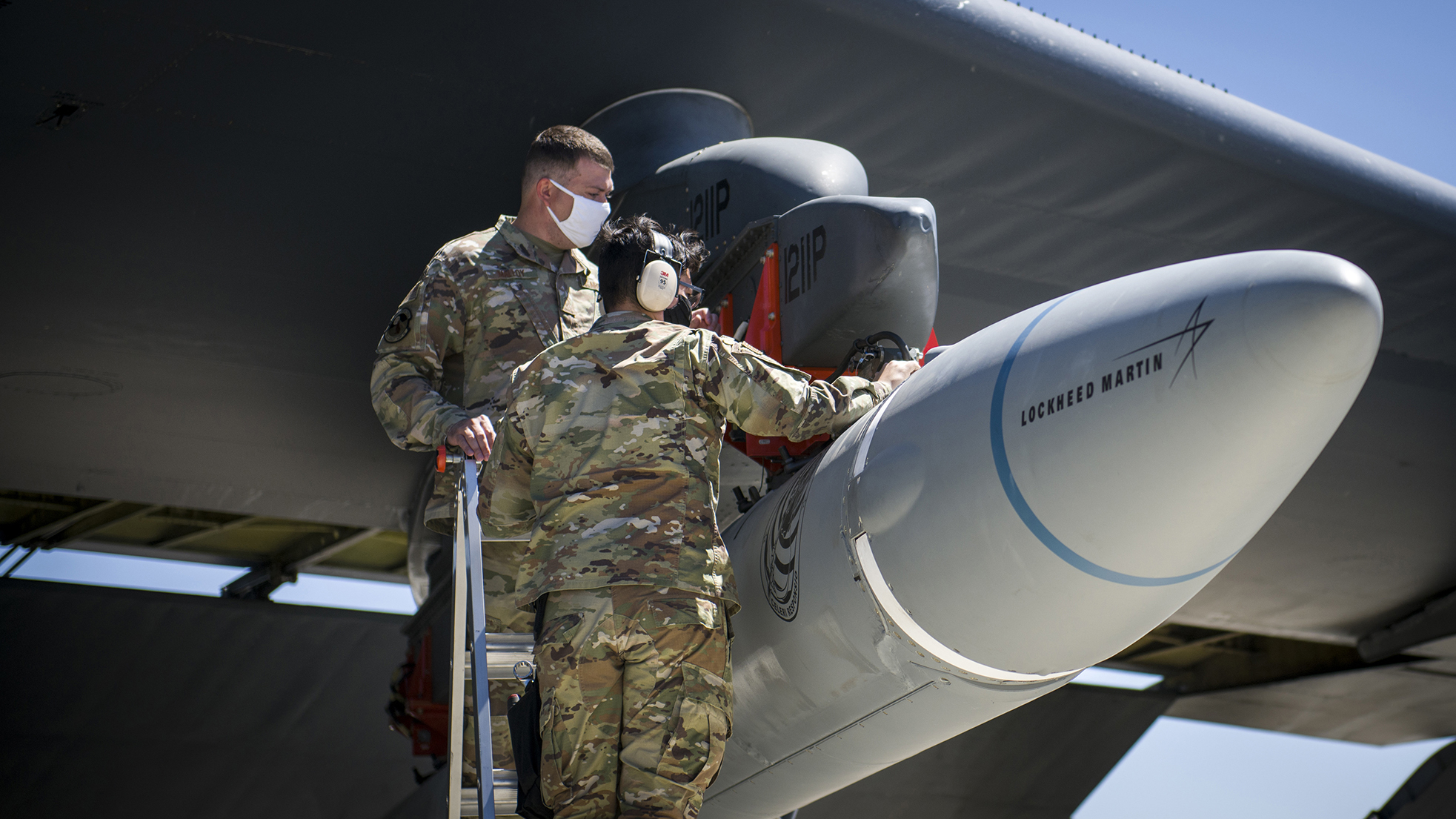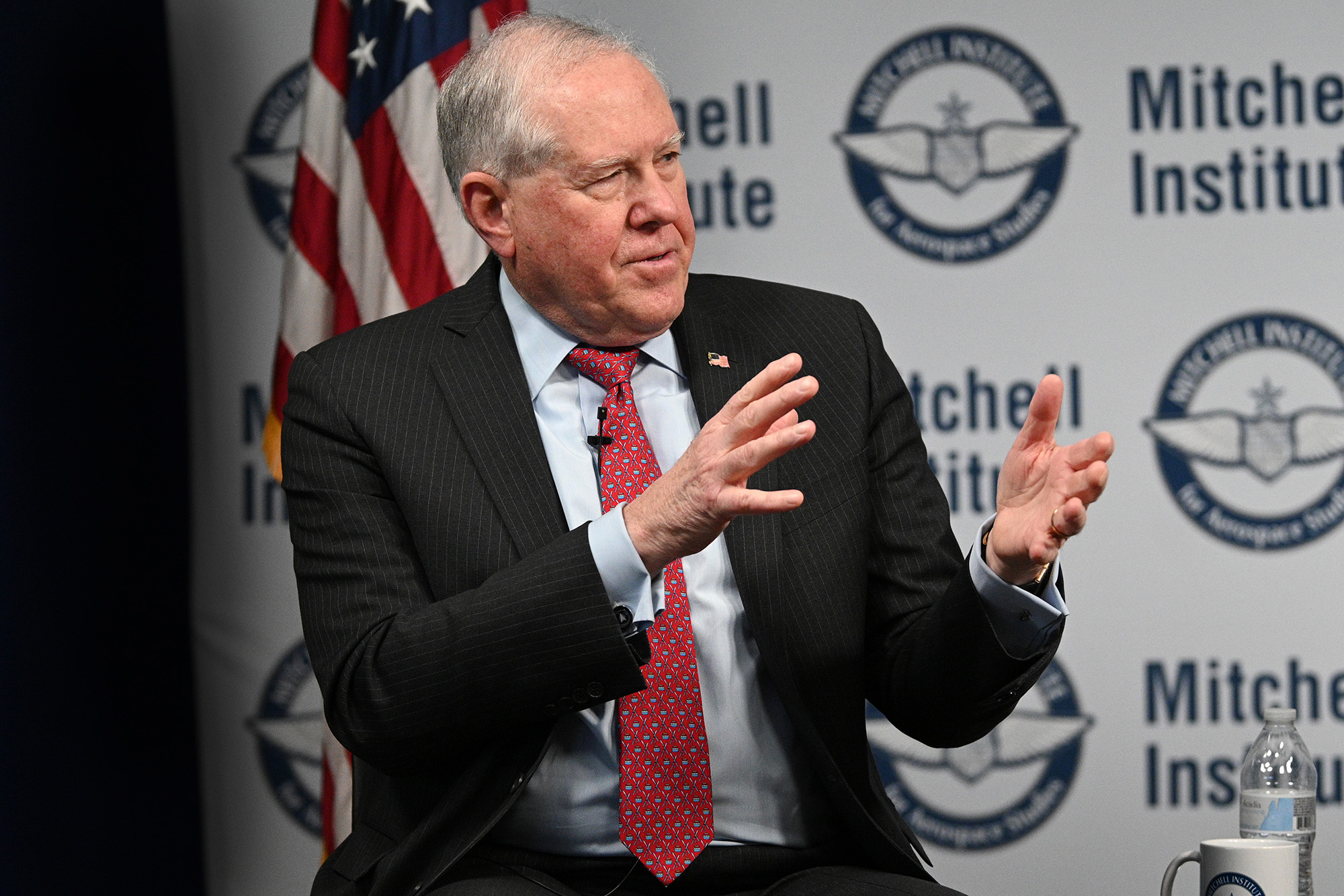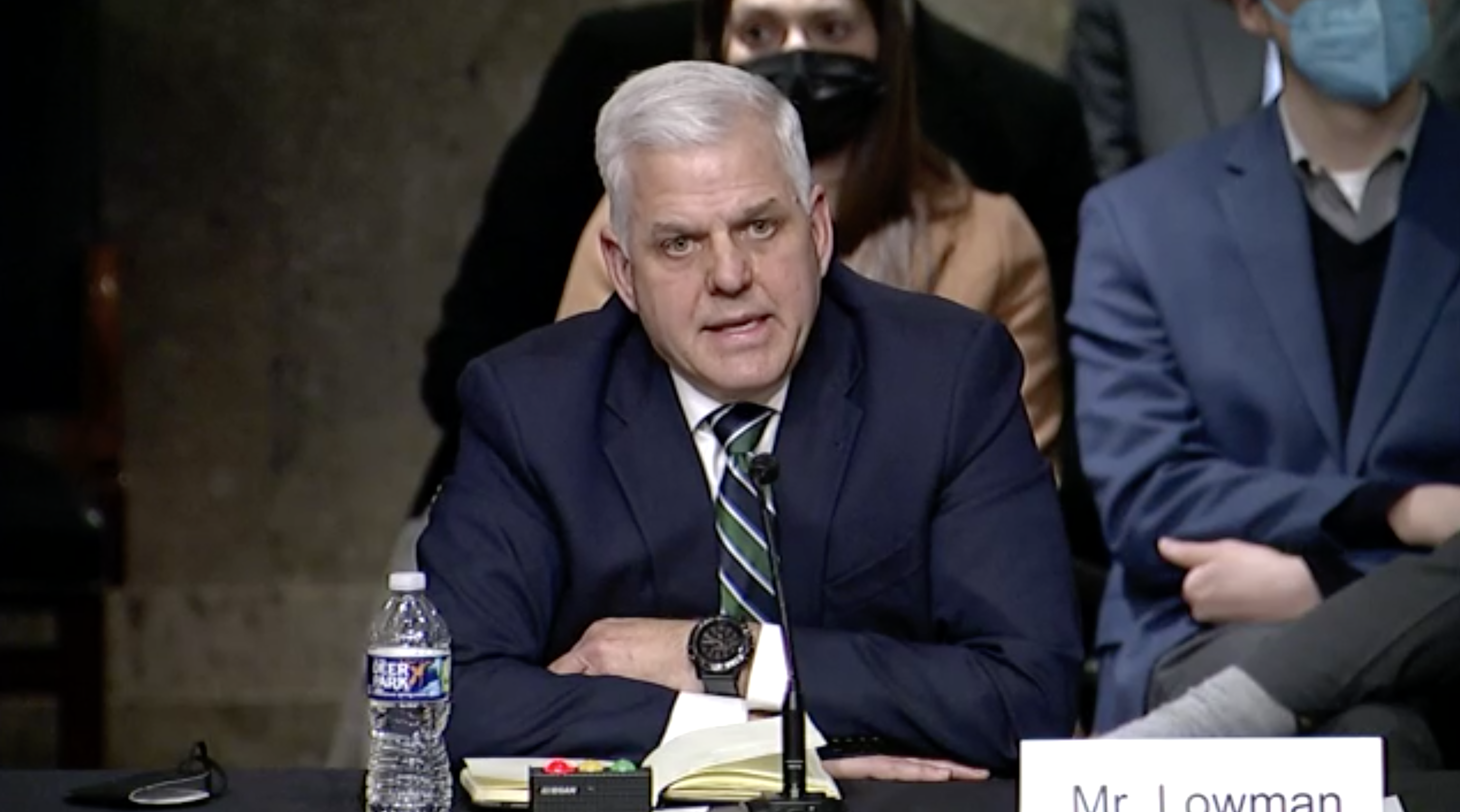The nominee to serve as the first assistant secretary of the Air Force for space acquisition and integration pledged to bring program discipline to the position—even if it means canceling struggling programs.
“I am a firm believer in delivering programs on cost, on schedule, and meeting our requirements. And if there’s programs that are awry or not heading in the right direction, I have no problem either taking corrective action or terminating them,” Frank Calvelli told the Senate Armed Services Committee during his Feb. 17 confirmation hearing.
Calvelli, a former National Reconnaissance Office official, was nominated by President Joe Biden in December to become the senior acquisition executive for space systems in the Department of the Air Force.
At the NRO, Calvelli oversaw satellite and ground system acquisitions before he left to work at Booz Allen Hamilton, overseeing the company’s space and intelligence programs.
His potential return to government comes at a “critical juncture for our defense space architecture,” he said in his opening statement.
“There is a real sense of urgency to act. The nation needs to outpace its adversaries and maintain the technological advantage it gets from space,” Calvelli said. “The nation needs to integrate its space architecture with other warfighting domains to give its warfighters a strategic edge. The nation needs to make its space architecture more resilient so that it can be counted on during times of crisis and conflict, and the nation needs to do this with speed.”
In order to achieve that necessary speed, Calvelli listed a host of ways for his office to boost acquisition, ranging from coordinating requirements and analysis to developing smaller systems for space and for software.
That speed will also require an experienced, talented acquisition workforce, noted Sen. Gary Peters (D-Mich.), who asked Calvelli how he intended to develop such a workforce.
“How I would approach that would be to do recruiting of some of the top-notch folk we can get our hands around, by training, by just discipline and focus on meeting our scheduled costs and technical commitments, and by just driving forward into the future,” Cavelli said.
“I think one of the biggest things that I, if confirmed, will try to bring is discipline, and discipline in terms of just pure program management. And where I grew up, I mean, the focus was purely on meeting your costs, meeting your schedule, and delivering your technical commitments, on time and on schedule. … I think it’s really important to really have a culture of program management discipline, and I think it’s going to allow us also to go a little bit faster as well. So I think, if confirmed, I intend to bring that to the Space Force.”
Calvelli’s nomination appears to be on a smooth path, with no senators indicating any opposition during his hearing. Should he be confirmed, he would be the first person approved by the Senate for his position, which has existed since December 2019 but never had a confirmed appointee. Currently, Brig. Gen. Steven P. Whitney is leading the office.
Space acquisition as an enterprise has already had several key changes in the past few years, including the transfer of senior acquisition executive authority and the stand up of Space Systems Command, the Space Force’s field command dedicated to acquisition.
Lt. Gen. Michael A. Guetlein, the head of SSC, will be a familiar face to Calvelli—they overlapped for several months at the National Reconnaissance Office.
Together, they’ll help shape a Space Force looking to build a more resilient architecture and reduce redundancies, while observers continue to push for more declassification of programs and capabilities.
On Feb. 17, Calvelli didn’t go into much detail into what kinds of capabilities he hoped to acquire, but he did agree with a statement from Sen. Tom Cotton (R-Ark.) that the U.S. needs to be able to “hold China and Russia’s assets at risk … with offensive capabilities.”
